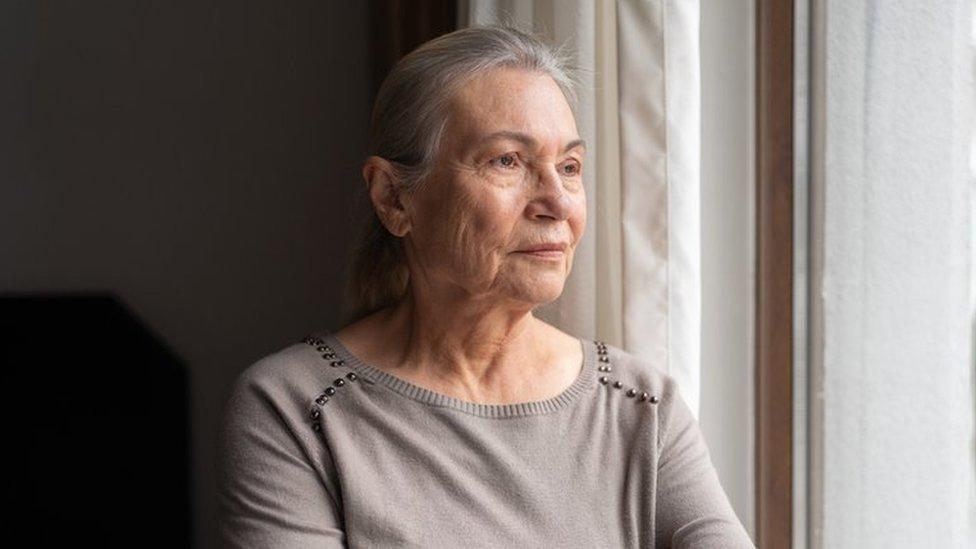Assisted dying bill offers 'ray of hope'
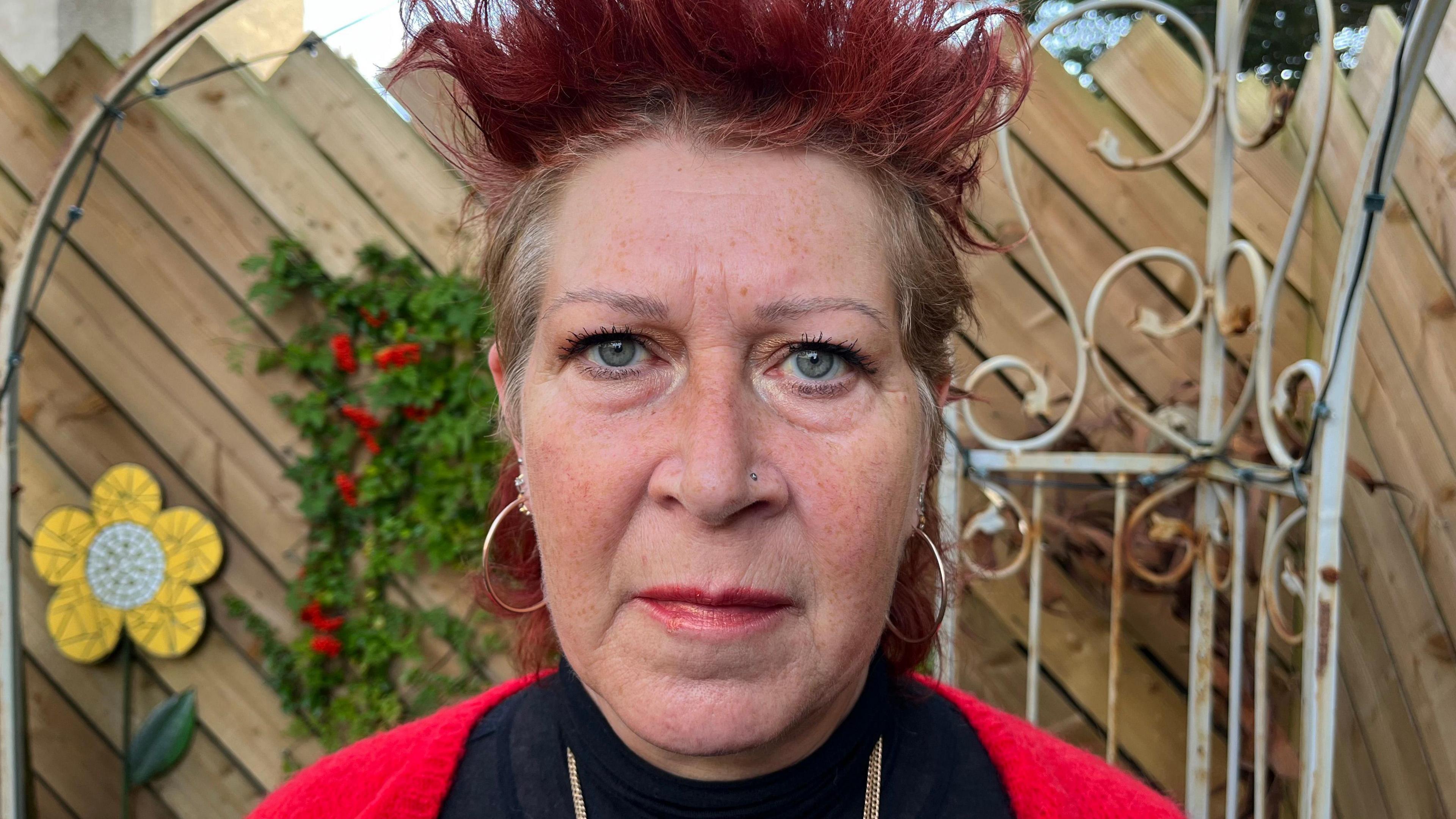
Ms Carruthers says a change in the law would give her an opportunity to "find [her] own peace"
- Published
A woman with terminal cancer says a proposed bill which allows people the right to choose to end their own life represents a "ray of hope".
On Thursday, Labour MP Kim Leadbeater confirmed she would introduce a bill giving terminally-ill people in England and Wales the right to choose to end their life.
The details have not been finalised but is likely to be similar to Lord Falconer's proposal, which would give terminally ill adults with six months or fewer to live the right to receive medical help to end their own lives.
Jenny Carruthers, from Bath, Somerset, was diagnosed with incurable breast cancer in 2018. She believes terminally ill people "deserve a voice" in the debate.
The bill is to be introduced in Parliament on 16 October, with a debate and initial vote likely to take place later this year.
Assisted suicide - intentionally helping another person to end their life - is currently banned in England, Wales and Northern Ireland, with a maximum prison sentence of 14 years.
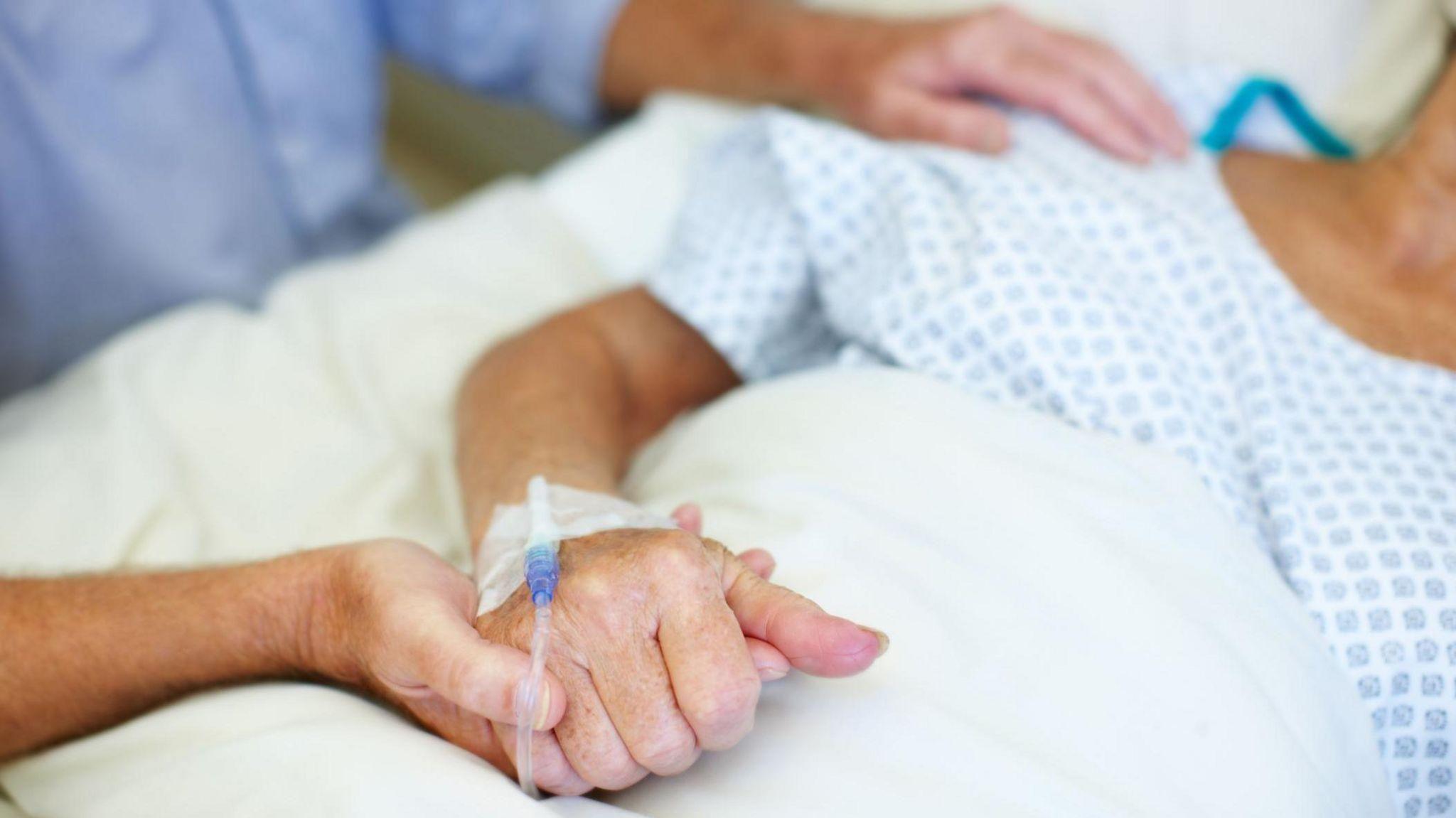
Assisted dying is generally used to describe a situation where someone who is terminally ill seeks medical help to obtain lethal drugs which they administer themselves
Ms Carruthers, whose partner died from cancer in 2013, said she wants to be given the option, for her family's sake.
"I know it's going to be really painful and I'm not going to be anywhere near as brave as I sound right now," she said.
"All I've ever really wanted is to be able to help my children look back over their shoulder and not have the most horrific memories. I want to leave them with what we've always had.
"If that's at all possible legally, it would be a huge thing for me and my family.
But some families say the proposed bill is not extensive enough.
Tony Nicklinson, from Melksham in Wiltshire, was left paralysed from the neck down after a stroke in 2005.
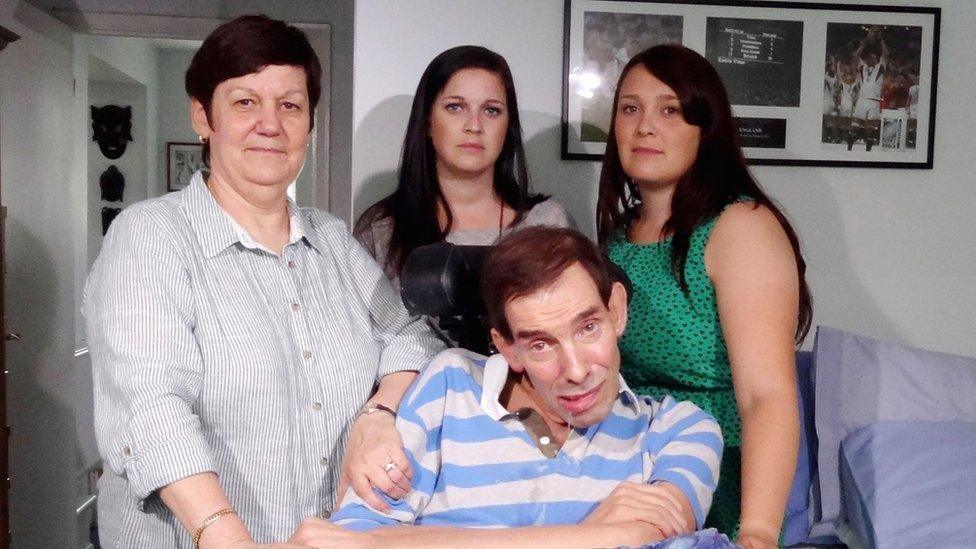
Mr Nicklinson was unable to speak and could only communicate by blinking
He fought for the right to legally end his life but was denied by the High Court.
Mr Nicklinson died in 2012 from pneumonia after refusing medical treatment.
His daughter Lauren Peters, who lives in Bristol, wants the new bill to include those experiencing "incurable suffering".
"Dad's final days, for him and the people around him, were traumatic to say the least," she said.
"It was a horrible way to die, and it was a horrible way to live."
If you have been affected by any of the issues raised in this story you can visit the BBC Action Line.
In order to protect vulnerable people, Ms Peters says the eligibility criteria would need to be "heavily regulated".
But she argued it should still extend to people like her father who made the decision "in sound mind".
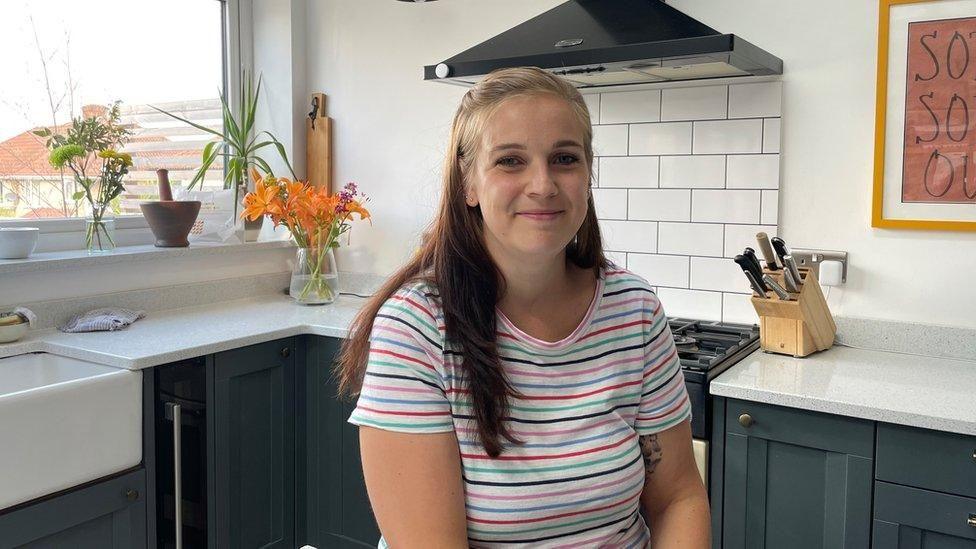
Ms Peters says her father would be frustrated to know "he died 12 years ago and nothing has changed"
She said: "He'd been offered every single type of palliative care going and it just wasn't enough for him.
"He did not want the life he was given, and that should have been respected."
Ms Peters says although the motion to assist the terminally ill is "a step in the right direction", she has concerns over its finality.
"Let's do something which encompasses the needs of a whole society rather than just a segment of it."
A Government spokesperson said: “We understand this is an incredibly emotive issue, and there are strongly-held views on all sides of the debate.
“As a matter of conscience, it is right that any changes to the law around assisted dying are decided by Parliament."
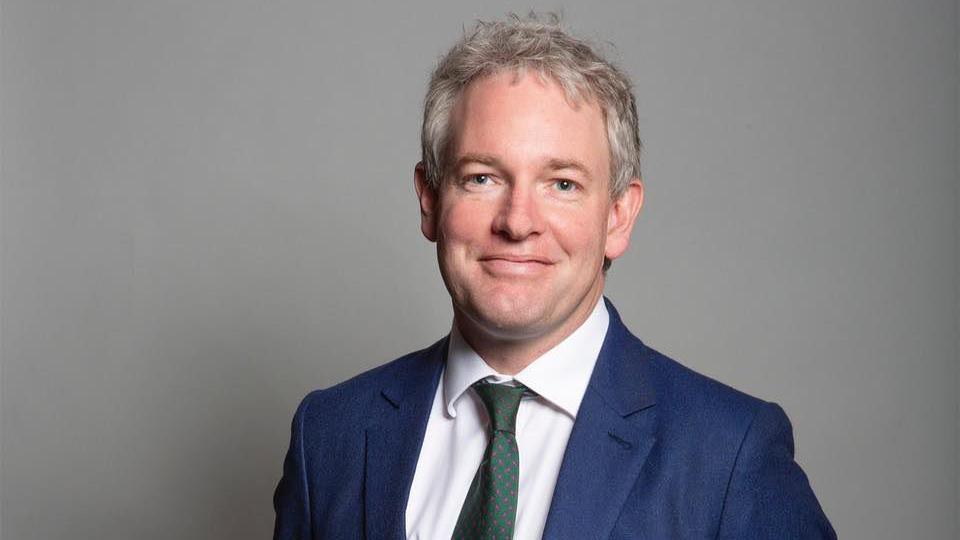
Mr Kruger is concerned that passing the bill would "steer focus away" from providing high-quality end of life care
The political make-up of the Commons has changed dramatically since 2015, when MPs last voted on assisted dying and the motion was rejected.
Danny Kruger, Conservative MP for east Wiltshire, feels raising the issue again is a "dangerous and unnecessary step".
"My problem with the law is not one of absolute principle, I understand totally why so many people think it's the right thing to do," he said.
"But the answer to that is not to hasten their deaths artificially, it's to ensure they die well and we can do that with modern medicine.
"Nobody needs to die in unbearable physical agony if they get the best possible care and that's what we should be focusing on."
However, Max Wilkinson, Liberal Democrat MP for Cheltenham, believes "people should have the ability to make a choice".
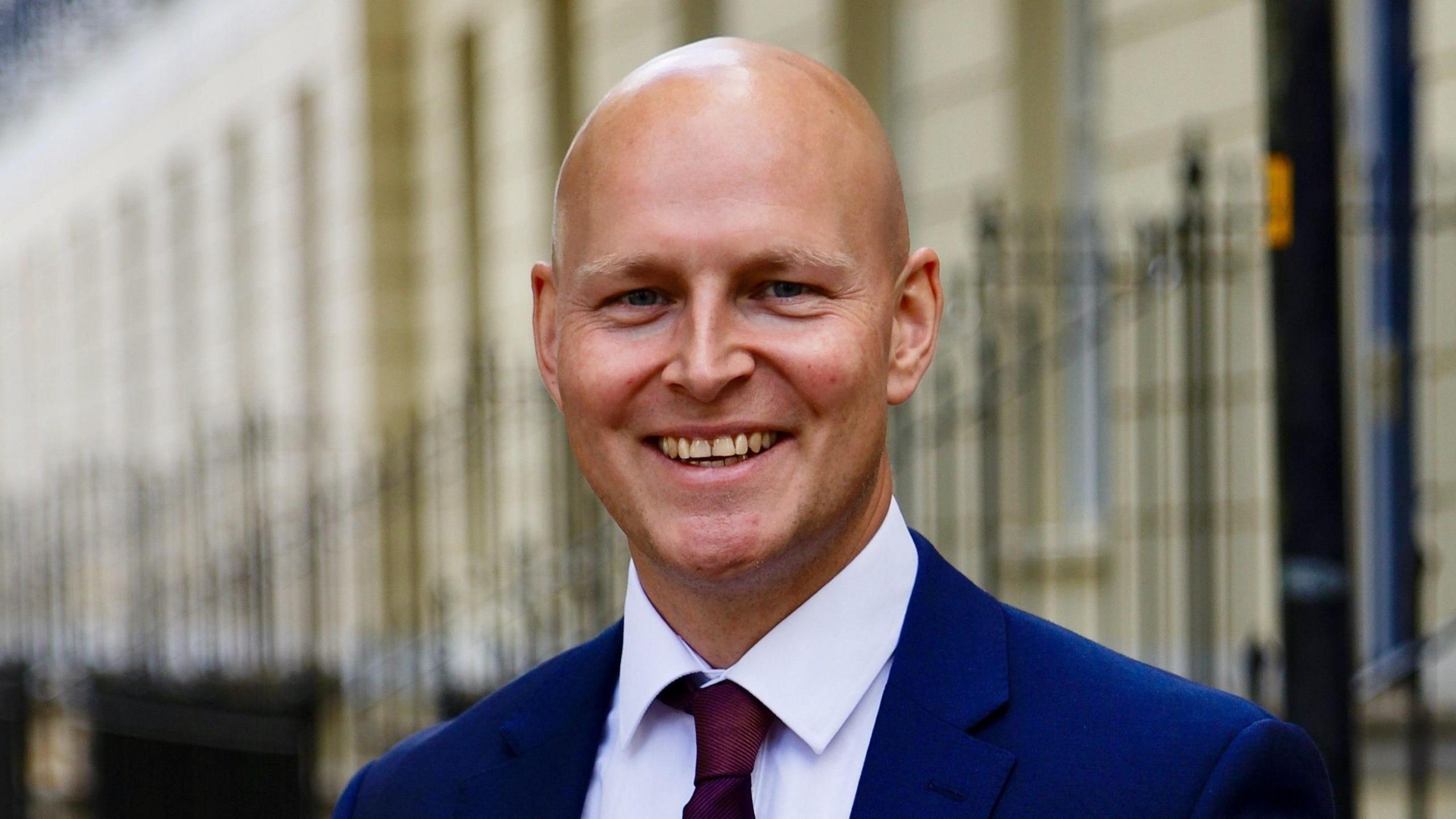
Mr Wilkinson says his decision will hang on the details of the proposal
"When people are in terrible pain, they've been suffering for a long time and they know they're not going to recover, I'm persuaded there is a case for a change of the law so they're able to make that choice.
"However, this will come down to the detail of what's being proposed and the sensitivity of the language used."
Get in touch
Tell us which stories we should cover in Bristol
Follow BBC Bristol on Facebook, X and Instagram. Send your story ideas to us on email or via WhatsApp on 0800 313 4630.
- Published4 October 2024

- Published22 August 2022
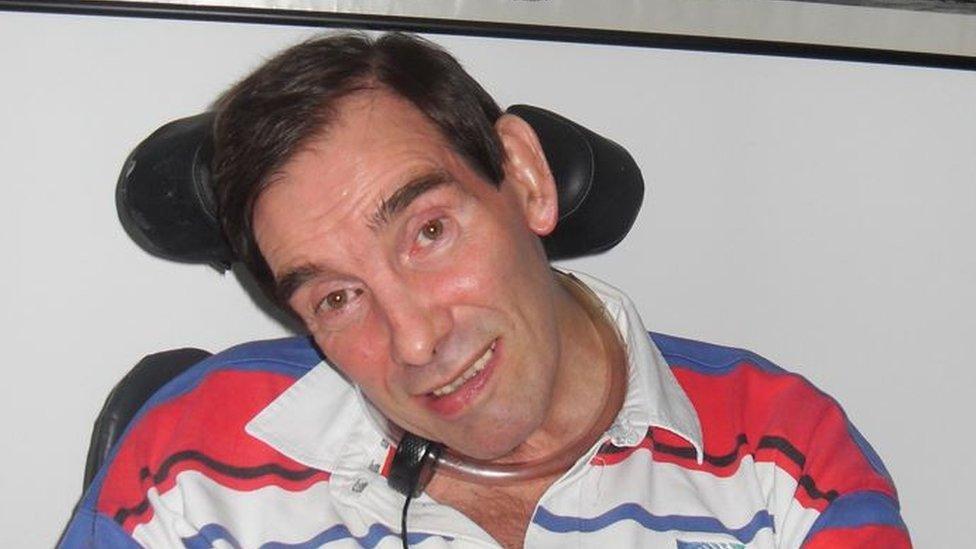
- Published19 June 2012
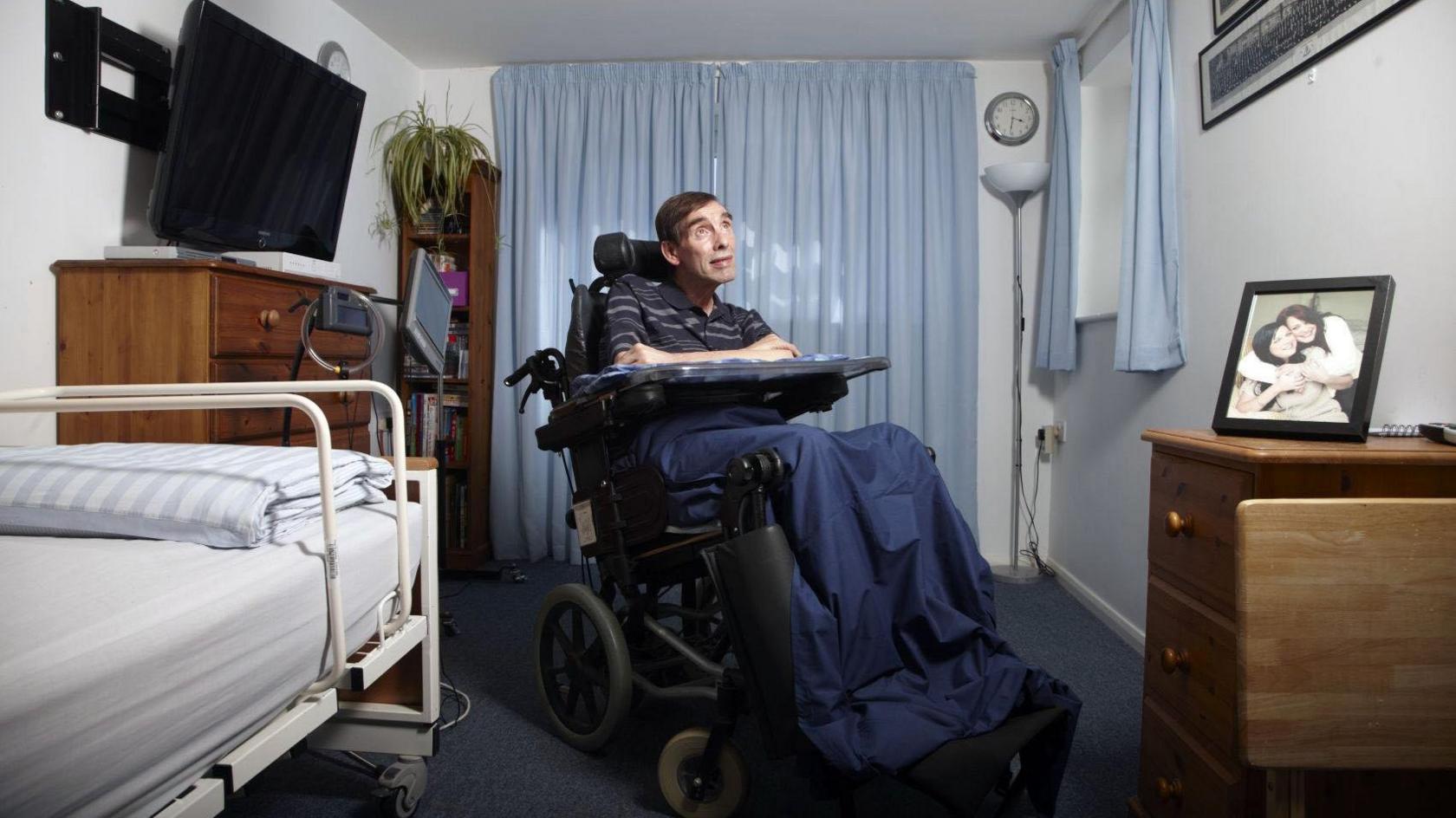
- Published16 August 2012
